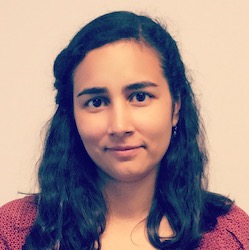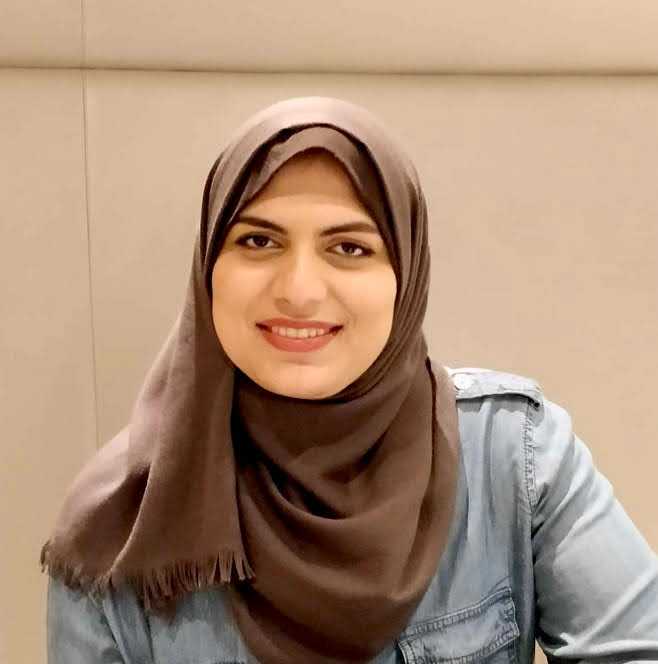What is RelWeb?
The growing popularity of the Open Data movement means that the Semantic Web provides access to vast amounts of (semi-)structured data designed for machine access covering diverse topics. Although the Semantic Web has a great
potential, it today relies solely on the data providers to publish their datasets through either downloadable data dumps, SPARQL endpoints, or dereferencable URIs.
However, previous research has shown that public SPARQL endpoints are, at times,
unavailable for queries.
As a result, it can in some cases be impossible to follow links between entities used in multiple datasets. This lays a huge burden on the data providers, one they have little incentive to fulfil.
RelWeb aims at developing techniques that use replication and blockchain / peer-to-peer (P2P) principles to relieve data providers from the burden of having to ensure uninterrupted availability of their Web interfaces. In doing so,
RelWeb will establish
a reliable Web of Data (WoD) whose architecture better matches the decentralized character of the current human-centric Web.
Semantic Web
The Semantic Web represents a broad range of ideas and technologies with the goal of bringing meaning to the vast amount of information available on the Web. The intention is to provide information in a structured form so that it can be processed automatically by machines.
Knowledge Graphs
A knowledge graph represents a collection of interlinked descriptions of entities – objects, events, or concepts. Knowledge graphs put data in context via linking and semantic metadata and in this way provide a framework for data integration, unification, analytics, and sharing.
SPARQL
SPARQL is the most popular RDF query language; its name is a recursive acronym that stands for “SPARQL Protocol and RDF Query Language”. It was standardized by the RDF Data Access Working Group (DAWG) of the World Wide Web Consortium, and is now considered a key Semantic Web technology.
Subprojects
These subprojects demonstrate our progress towards our main goal.
Quality Shapes Extraction (QSE)
Extraction of Validating Shapes from very large Knowledge Graphs
Lothbrok
Optimizing SPARQL Queries over Decentralized Knowledge Graphs
Validating Shapes Survey
SHACL and ShEx in the Wild: A Community Survey on Validating Shapes Generation and Adoption
SPARQL-Prov
How-Provenance for SPARQL Queries via Query Rewriting.
ColChain
Collaborative Linked Data Networks.
RDFShapes
Optimizing SPARQL Queries using Shape Statistics.
PPBFs
Decentralized Indexing over a Network of RDF Peers.
GLENDA
Querying RDF Archives with full SPARQL
Factify
Retrieving Textual Evidence for Knowledge Graph Facts.
SPF
Accessing Knowledge Graphs through Star Patterns
PIQNIC
A Decentralized Architecture for Sharing and Querying Semantic Data.
RDFev
Framework for the Evolution of RDF Data.
WiseKG
Balanced Access to Web Knowledge Graphs.
TrieDF
In-memory management of metadata augmented RDF with tries.
RDF-star
An Analysis on Transforming RDF-star Graphs to Property Graphs.
Publications
Research in the context of RelWeb has been published in top international venues.
-
SHACTOR: Improving the Quality of Large-Scale Knowledge Graphs with Validating Shapes
Kashif Rabbani, Matteo Lissandrini, and Katja Hose. In Proceedings of the 2023 International Conference on Management of Data, (SIGMOD-Companion '23) June 18-23, 2023, Seattle, WA, USA. -
Extraction of Validating Shapes from very large Knowledge Graphs
Kashif Rabbani, Matteo Lissandrini, and Katja Hose. In Proceedings of the Very Large Databases 2023 (Volume 16 Issue 5, VLDB-2023 ) August 2023, Vancouver Canada. -
SHACL and ShEx in the Wild: A Community Survey on Validating Shapes Generation and Adoption
Kashif Rabbani, Matteo Lissandrini, and Katja Hose. In Companion Proceedings of the Web Conference 2022 (WWW'22 Companion), April 25-29 2022. DOI: 10.1145/3487553.3524253 -
Computing How-Provenance for SPARQL Queries via Query Rewriting
Daniel Hernández, Luis Galárraga, and Katja Hose. In Proceedings of the VLDB Endowment 2021, Vol. 14, No. 13 ISSN 2150-8097. -
A Demonstration of ColChain: Collaborative Knowledge Chains
Christian Aebeloe, Gabriela Montoya, and Katja Hose. In Proceedings of the 20th International Semantic Web Conference (ISWC 2021) Posters & Demos -
ColChain: Collaborative Linked Data Networks
Christian Aebeloe, Gabriela Montoya, and Katja Hose. In Proceedings of the 30th The Web Conference (WWW 2021) -
WiseKG: Balanced Access to Web Knowledge Graphs
Amr Azzam, Christian Aebeloe, Gabriela Montoya, Ilkcan Keles, Axel Polleres, Katja Hose. In Proceedings of the 30th The Web Conference (WWW 2021) -
Optimizing SPARQL Queries using Shape Statistics
Kashif Rabbani, Matteo Lissandrini, and Katja Hose. In Proceedings of the 24th International Conference on Extending Database Technology (EDBT 2021) -
Multidimensional enrichment of spatial RDF data for SOLAP. Semantic Web 13(1): 5-39 (2022).
Nurefsan Gür, Torben Bach Pedersen, Katja Hose, Mikael Midtgaard In Semantic Web Journal (SWJ 2021) -
High-level ETL for semantic data warehouses. Semantic Web 13(1): 85-132 (2022)
Rudra Pratap Deb Nath, Oscar Romero, Torben Bach Pedersen, Katja Hose In Semantic Web Journal (SWJ 2020) -
Star Pattern Fragments: Accessing Knowledge Graphs through Star Patterns
Christian Aebeloe, Ilkcan Keles, Gabriela Montoya, Katja Hose. CoRR abs/2002.09172 (arxiv.org 2020) -
Transparent Integration and Sharing of Life Cycle Sustainability Data with Provenance.
Hansen, Emil Riis, Matteo Lissandrini, Agneta Ghose, Søren Løkke, Christian Thomsen, and Katja Hose. In International Semantic Web Conference (ISWC 2020) -
Decentralized Indexing over a Network of RDF Peers
Christian Aebeloe, Gabriela Montoya, and Katja Hose. In Proceedings of the 18th International Semantic Web Conference (ISWC 2019) -
Retrieving Textual Evidence for Knowledge Graph Facts
Gonenc Ercan, Shady Elbassuoni, Katja Hose. In Proceedings of the 16th European Semantic Web Conference (ESWC 2019) -
A Decentralized Architecture for Sharing and Querying Semantic Data
Christian Aebeloe, Gabriela Montoya, and Katja Hose. In Proceedings of the 16th European Semantic Web Conference (ESWC 2019)
Team members
Our team consists of people with different backgrounds, nationalities and personalities. This combination makes it a strong team who always collaborate to join the best and bring out the best.

Professor
Katja Hose is a professor at the department of Computer Science at Aalborg University (AAU). Before joining Aalborg University, she was a post-doctoral researcher at the Max Planck Institute for Informatics in Saarbrücken, Germany, and obtained her doctoral degree in Computer Science from Ilmenau University of Technology. Her research interests include Linked Open Data, data and knowledge engineering, query processing and optimization in distributed systems, and rank-aware query operators.
@HoseKatja
Associate Professor
Gabriela Montoya is an associate professor at the department of Computer Science at Aalborg University. Before joining Aalborg University, she was part of the Distributed Data Management team (GDD), at the Laboratory of Informatics of Nantes Atlantique (LINA) in France. She got her doctoral degree in Computer Science from the University of Nantes. She works on query processing, with focus on source selection and query decomposition.
@gabrielaAssistant Professor
Matteo Lissandrini is an Assistant Professor in the Department of Computer Science at Aalborg University working on Data Exploration and Knowledge Graph Management systems. Matteo has been a Marie Skłodowska Curie IF fellow. Matteo received his PhD from the University of Trento (Italy) with a thesis on exploratory search for information graphs. He was also a member of the DbTrento research group.
@KuzekoPostdoctoral Researcher
Daniel Hernández is a postdoctoral researcher in the Computer Science Department at Aalborg University, and before he was a member of the Millenium Institute Foundational Research on Data in Chile. Daniel obtained his doctoral degree from the University of Chile with a thesis on incomplete data in SPARQL. His main interests include the semantics of data on the Web.
@danlhz
Postdoctoral Researcher
Ghadeer Abuoda is a postdoctoral researcher in the Department of Computer Science at Aalborg University (AAU). Ghadeer received her Ph.D. from Hamad Bin Khalifa University in Qatar in 2021. Her research thesis revolves around developing and applying machine learning models that tackle common graph problems (link prediction, clustering) and inferring knowledge from knowledge graphs (knowledge graph completion and entity alignment).
@GhadeerAbuoda
PhD Fellow
Christian Aebeloe is a Ph.D. Fellow at the department of Computer Science of Aalborg University. His work has focus on the field of efficient query processing over decentralized Web sources. His other interests lie in ensuring continued availability and trust of the LOD cloud.
@ChraebePhD Fellow
Olivier Pelgrin is Ph.D. fellow at the department of Computer Science of Aalborg University. His work is focused on the problem of efficient management of metadata augmented RDF data, with a particular focus on indexing schemes.
PhD Fellow
Kashif Rabbani is a Ph.D. Fellow at the department of Computer Science of Aalborg University. His work has focused on the field of efficient query processing on Web. His other interests lie in the field of validation and storage of RDF graphs and Polystores.
@chkashifrabbaniContact us
-
Aalborg University
Department of Computer Science
Selma Lagerlöfs Vej 300, DK-9220 Aalborg Ø. Denmark -
khose@cs.aau.dk